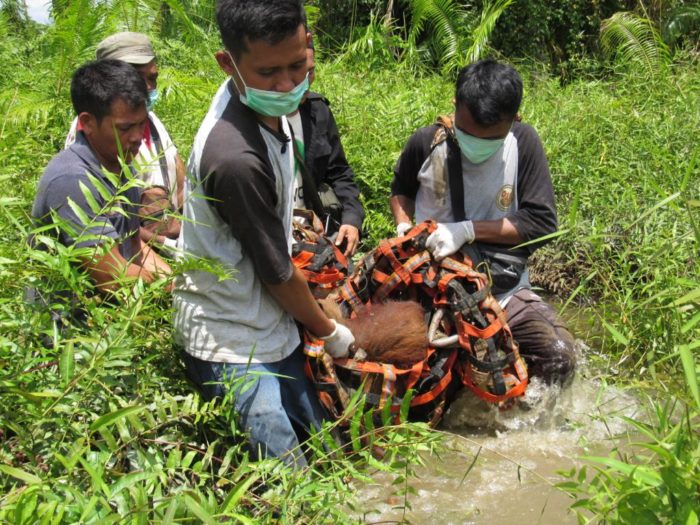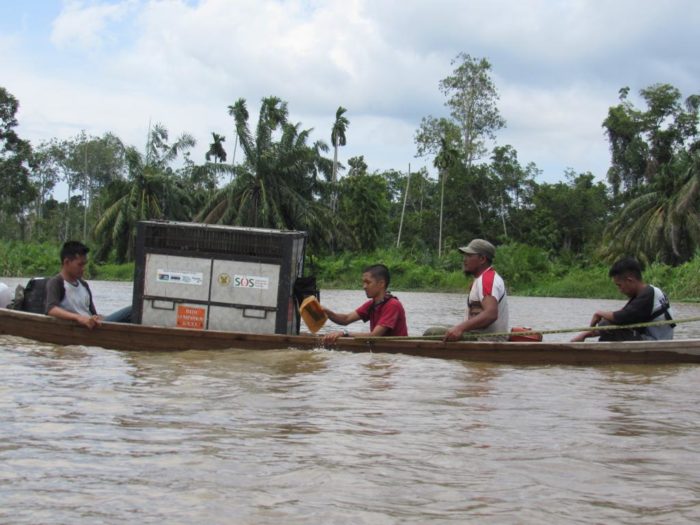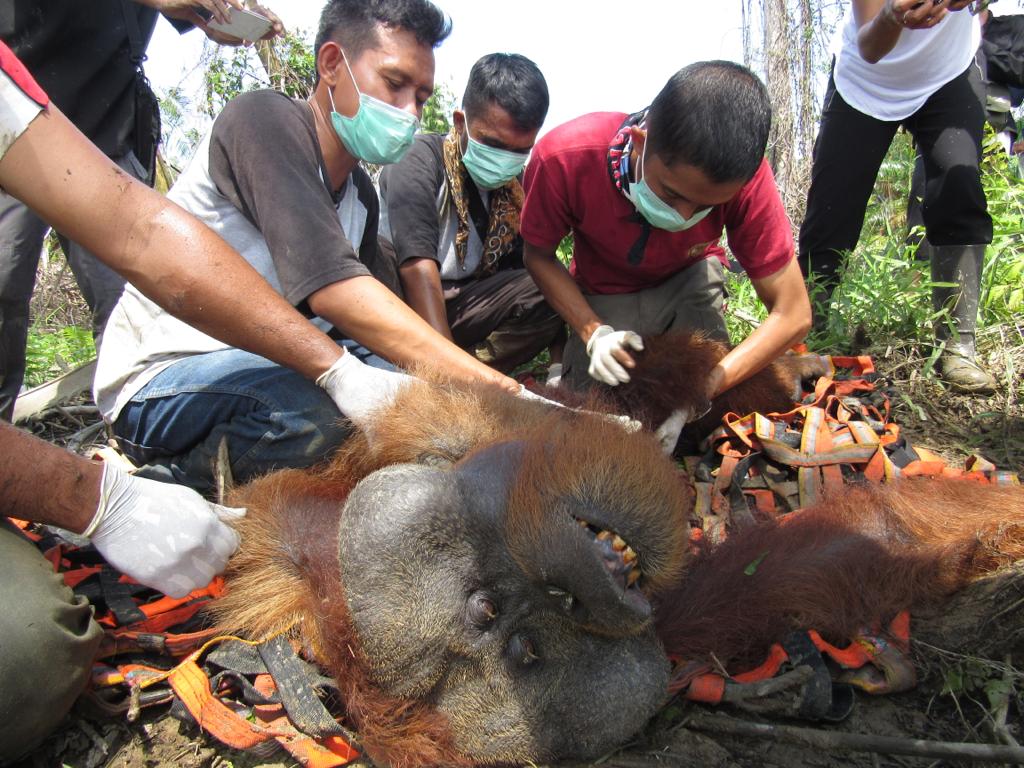As major snack food brands continue to drag their feet, there is a very real and growing danger that the Sumatran orangutan could become the first member of the great apes, humankind’s closest living relatives, to be pushed to extinction in the wild. This fight for survival is on stark display in the Singkil-Bengkung rainforests of Indonesia’s Leuser Ecosystem. Part of a region dubbed ‘the orangutan capital of the world,’ it has the highest density of orangutans found anywhere on earth. This remote, lowland, coastal landscape remains remarkably intact, making it among the highest priority conservation areas for preserving this iconic species. Tragically, the region is actively under siege from deforestation to make room for the expansion of Conflict Palm Oil plantations.
Despite being exposed for their connections to the destruction of this rainforest stronghold, food giants Mondelēz, Mars, Kellogg’s and General Mills have so far failed to respond publicly with a set of actions they will take to stop the crisis unfolding in their palm oil supply chain in the Singkil-Bengkung region. Meanwhile, many of their peers have begun to take responsibility by issuing commitments to intervene to protect the Leuser Ecosystem.
Heroic efforts by the Orangutan Information Center (OIC) are giving individual orangutans, displaced by deforestation and palm oil expansion, a fighting chance; but this method cannot be a viable long term solution. In the Singkil-Bengkung area alone, at least a half-dozen adult male orangutans, estimated between the ages of 25 to 35 years old, have been rescued by OIC field teams in the past couple of years, mostly after being found stranded from habitat destruction and isolated in rural community agricultural areas. Only one was still healthy enough to be released immediately into the Rawa Singkil Wildlife Reserve; the others are undergoing rehabilitation at OIC’s Singkil center.
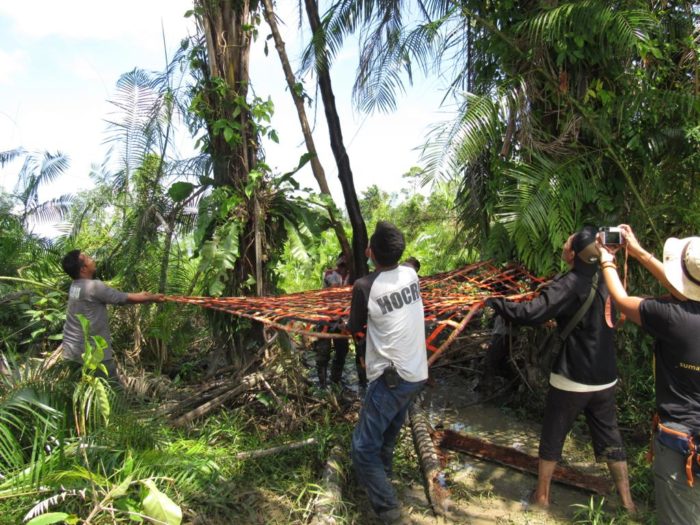
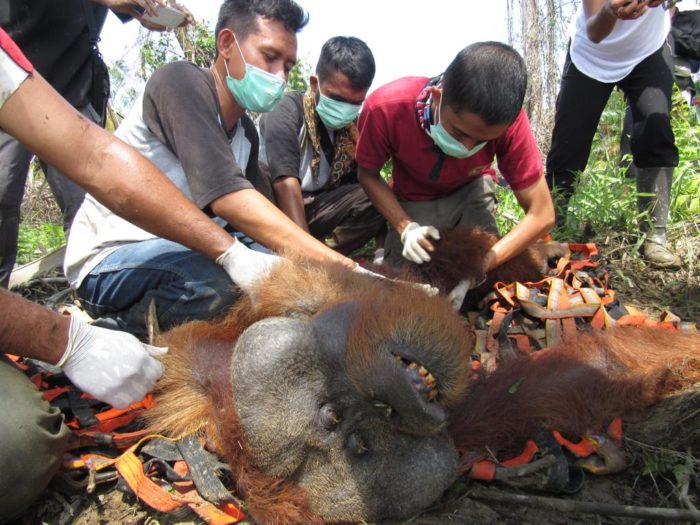
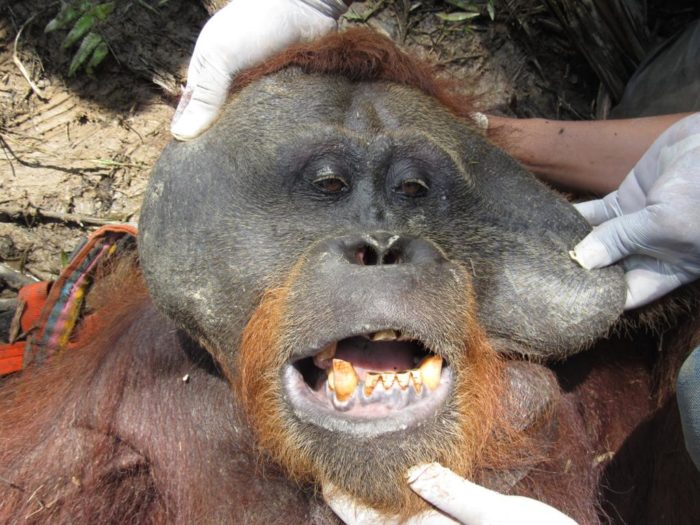
It is important both to support the tireless work of OIC via their website at https://orangutancentre.org, and also to increase pressure on the major food companies by letting them know continued inaction during this emergency is unacceptable. Please take action here today.
